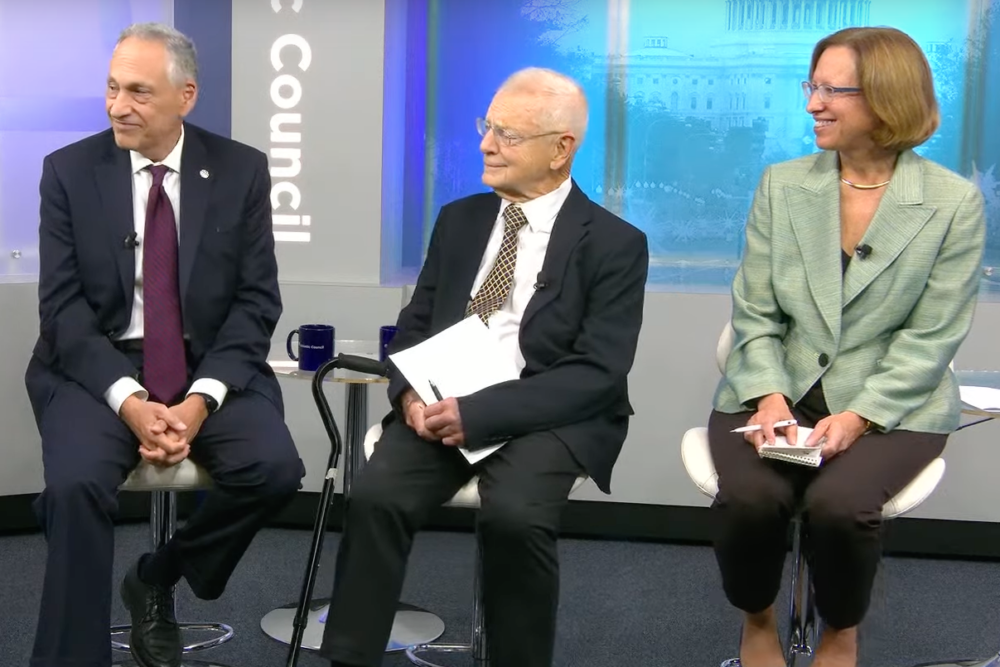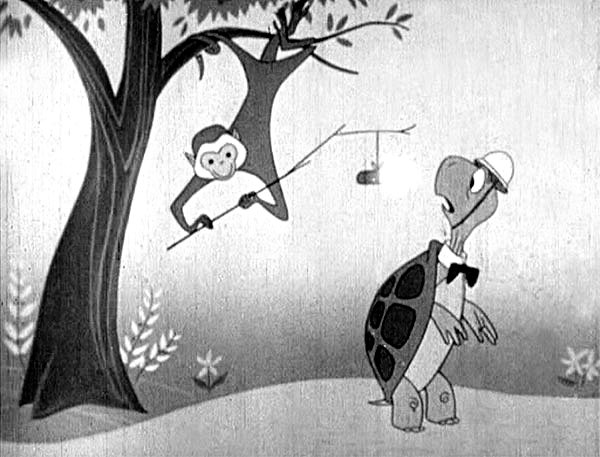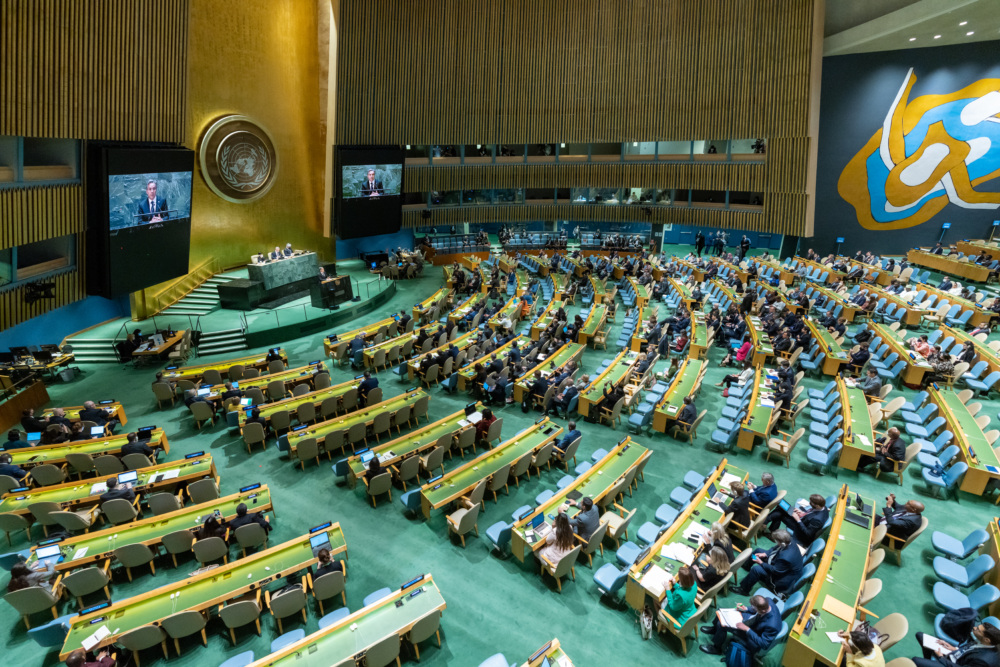This post was written by Grace Strelich, an intern with NTI’s International
Fuel Cycle Strategies Program. Originally from Santa Barbara, California, she
graduated from the University of St. Andrews in 2019 with joint honours in
International Relations and Modern History.
In the early 1950s, Bert
the Turtle was shuffling through the film
screens of classrooms across the country teaching kids to “Duck! And cover!”
Nearly two decades later, the Treaty on the Non-Proliferation of Nuclear
Weapons (NPT) went into force, establishing a global foundation for preventing
the spread of nuclear weapons while encouraging the peaceful uses of nuclear
energy. It represented progress toward a world where schoolchildren wouldn’t
have to be taught to protect their heads during a nuclear detonation.
Today, although the NPT has mostly worked well,
the balance of security and peaceful nuclear cooperation put forward in the
treaty is challenged in the face of states like Iran and North Korea, which
have engaged in undeclared nuclear activities that run counter to the treaty.
NTI’s Richard
Johnson, senior director for fuel cycle
and verification, testified about these issues before two subcommittees of theHouse Foreign Affairs Committee last week, along with three other witnesses:
Ambassador (ret.) Bonnie Jenkins, former Coordinator for Threat Reduction
Programs at the State Department’s Bureau of International Security and
Nonproliferation; Dr. Wendin Smith, former Deputy Assistant Secretary of
Defense for Countering Weapons of Mass Destruction; and Stephen G. Rademaker,
former Assistant Secretary of State in the Bureaus of Arms Control and
International Security and Nonproliferation.
Despite current challenges, the remarkable success
of the NPT in the 50 years since its ratification should be recognized, Johnson
said. As he noted in his written testimony, “The conventional wisdom was that
many more states would acquire nuclear weapons in the decades to come – indeed,
in 1963 President Kennedy expressed concern that there could be ‘15 or 20’
nuclear powers by 1975.”
Rademaker agreed: “Had we held this hearing 20
years ago, the rogue states that were toying with the idea [of developing
nuclear weapons], these were all countries that had signed the nonproliferation
treaty but had embarked on programs to break out of the treaty and to deploy
nuclear weapons in violation of the treaty. The list then would have included
Iraq, Syria, Libya, as well as Iran and North Korea, and it’s actually a great
success that today the only rogue states are the latter two.”
Rep. Ted Yoho, R-Fla., ranking member of the Subcommittee
on Asia, the Pacific, and Nonproliferation, asked about the longevity of the
NPT in the face of nuclear terrorism and states like Iran and North Korea.
Smith pointed to significant advances in technology that are giving states new
ways to address these risks through much stronger detection and monitoring.
These advances open the doors for new states to carry out peaceful use of
civilian nuclear energy with the security of enhanced verification procedures.
Widening the scope of nuclear security by
harnessing advancing technology is just one piece of this puzzle, however. In
her written testimony, Jenkins emphasized the need for practical steps to be
taken to improve coordination and the use of a wide variety of tools across
U.S. agencies and with foreign partners: “We should refresh the
whole-of-government approach… [The NPT] requires renewed U.S. diplomatic
leadership to support all the key pillars of the treaty, particularly on
disarmament and nonproliferation.”
Witnesses pointed to other nuclear agreements and
regimes as models for strengthening the implementation of the NPT. One such
agreement, the Joint Comprehensive Plan of Action (JCPOA), was negotiated with
the goal of preventing Iran from developing a nuclear weapon while tightly monitoring
its civil nuclear energy activities. The deal between the five permanent
members of the United Nations Security Council (including the United States),
the European Union, and Iran aimed to regulate nuclear activity in Iran and
included strict verification and monitoring provisions. President Trump
officially withdrew the United States from the agreement in May 2018, and under
the shadow of this decision, some members of Congress on Tuesday expressed
concern at the hearing about the United States’ credibility moving forward with
international nuclear agreements.
Rep. Ted Deutch, D-Fla., chair of the Subcommittee
on the Middle East, North Africa, and International Terrorism, raised the issue
of Iran’s current steps to increase its uranium stockpile and concerns about
undeclared locations, and noted that its commitment to the NPT has been called
into question several times. Johnson made clear that Iran must uphold its
obligations to the IAEA to implement nuclear safeguards, measures to verify
they are using nuclear materials only for peaceful uses, citing recent reports
by the agency that Tehran has not fully cooperated with the IAEA.
Johnson also noted that, despite Iranian threats
to leave the NPT, “the strength of the treaty is such that other countries,
including countries that have closer relations with Iran, like Russia and
China, I think would take great alarm at Iran basically following the path of
North Korea.”
Panelists pointed to numerous ways to strengthen
the treaty including developing advanced technologies and innovative sampling
techniques, including broader use of tools put forward in the JCPOA, to enhance
safeguards. One such tool is the Online Enrichment Monitor which tracks the
level of enrichment at Iranian facilities in real time and could be deployed to
other locations. Beyond practical technological methods to strengthen the NPT,
Johnson reiterated that further treaties, agreements, and good-faith
commitments to nuclear security are vital to preserving a world free of nuclear
crises. “A necessary first step in this regard is for the United States and
Russia to agree to extend the New START treaty. Failing to do so would mean
that, for the first time in nearly half a century, U.S. and Russian strategic
nuclear forces would be entirely free of legal constraints.”
The nuclear nonproliferation regime has come a
long way since a turtle serenaded schoolchildren with “Duck! And cover!” The
NPT has been crucial to this evolution, but as the world approaches the
treaty’s 50th anniversary, it is important to remember that all nations have a
stake in preserving and maintaining the tenets it laid out to move forward
toward a world free of nuclear weapons.
To watch the full testimony or read Johnson’s remarks, click here.




